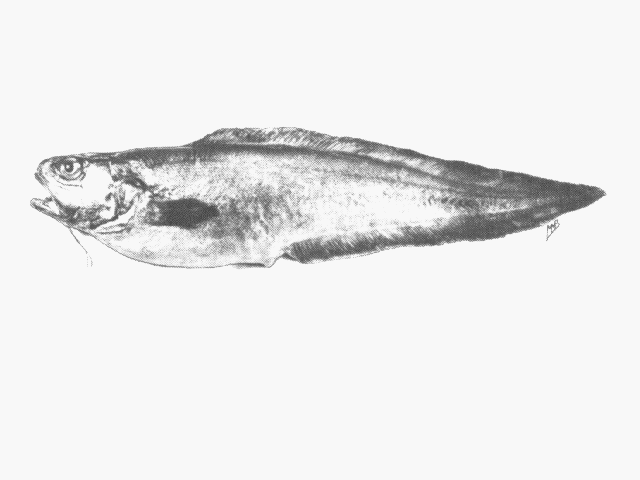| Ophidiidae (Cusk-eels), subfamily: Neobythitinae |
| 45 cm TL (male/unsexed) |
|
benthopelagic; marine; depth range 180 - 550 m |
| Western Indian Ocean: Natal, South Africa and a few localities somewhat to the north. |
|
Dorsal spines (total): 0-0; Dorsal soft rays (total): 99-103; Anal spines: 0-0; Anal soft rays: 78-82. Rather elongate body with blunt head; eye almost as long as snout; upper jaws ends well behind eye; 3 sharp spines on preopercle and 1strong opercular spine; 1 median and a pair of basibranchial tooth patches; 5-6 developed rakers on anterior gill arch; pelvic fins inserted beneath eye; precaudal vertebrae 15 (Ref. 34024). Snout spine absent (Ref. 34024). Greenish or pinkish in color (Ref. 4103). |
| Uncommon species (Ref. 34024). Oviparous, with oval pelagic eggs floating in a gelatinous mass (Ref. 205). |
|
Least Concern (LC); Date assessed: 13 August 2019 Ref. (130435)
|
| harmless |
Source and more info: www.fishbase.org. For personal, classroom, and other internal use only. Not for publication.
